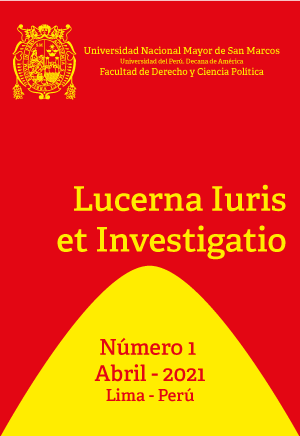The penalty for the provision of services to the community, as a positive alternative and the creation of a national registry, for its effective application
DOI:
https://doi.org/10.15381/lucerna.v0i1.18374Keywords:
Provision of community services, national registerAbstract
The penalty of providing the service to the community in its various thematic components is studied: its regulation, degree of application, dogmatic development. Its advantages are examined in relation to the benefits of rehabilitation, reeducation and resocialization of the convicted. Among the main causes of its minimal application are: poor doctrinal development; the imprecise regulatory regulation on conversion, the lack of dissemination as an alternative penalty to the custodial sentence. Finally, it should be noted that the penalty for rendering services to the community is more effective and productive than the reservation of the conviction and the suspension of the execution of the sentence. Despite legislative changes on the penalty of providing the service to the community; It is imminently the application of a control and registration of these convicted through the creation of a National Registry of Sentenced to the penalty of providing services to the community “RENSPSC” with the use of virtual tools. The Registry of these convicted persons would allow to have updated information, in real time, on the receiving entities, modalities of compliance with the penalty, degree of compliance; Courts issuing the judgment, among other variables.
Downloads
Published
Issue
Section
License
Copyright (c) 2021 Jesús Josué Ramos Falcón

This work is licensed under a Creative Commons Attribution 4.0 International License.
THE AUTHORS RETAIN THEIR RIGHTS:
- The authors retain their rights to the work, trademark and patent, and also to any process or procedure described in the article.
- The authors retain the right to share, copy, distribute, execute and publicly communicate the article published in Lucerna Iuris et Investigatio (for example, place it in an institutional repository or publish it in a book), with an acknowledgment of its initial publication in Lucerna Iuris et Investigatio .
- The authors retain the right to make a subsequent publication of their work, to use the article or any part of it (for example: a compilation of their work, conference notes, thesis, or part of a book), provided that indicate the source of publication (authors of the work, journal, volume, number and date).






